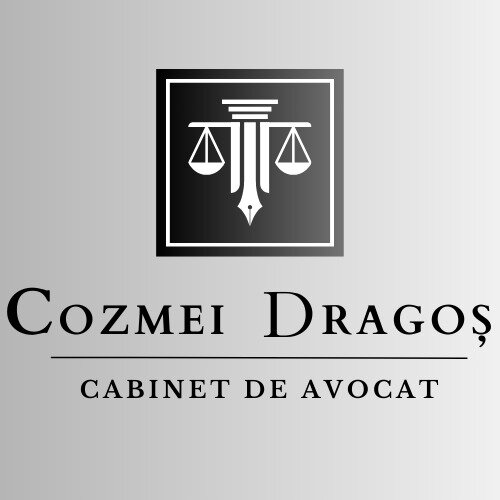Best Arrests & Searches Lawyers in Iasi
Share your needs with us, get contacted by law firms.
Free. Takes 2 min.
List of the best lawyers in Iasi, Romania
About Arrests & Searches Law in Iasi, Romania
In Roman law, an arrest typically refers to the act of using legal authority to forcibly deprive someone of their freedom. Searches, on the other hand, refer to the inspection of an individual's body, possessions, or property by law enforcement officers in search of evidence of crime. The laws concerning arrests and searches in Iasi, Romania, are primarily based on the Romanian Constitution of 2003 and the Criminal Procedural Code of Romania.
Why You May Need a Lawyer
If you are subject to an arrest or a search by law enforcement officers in Iasi, Romania, you may need a lawyer for a number of reasons. Regardless of the circumstances leading to your arrest or the search of your property, it is essential to be aware of and understand your rights. A lawyer can ensure your rights are upheld, provide advice in interacting with law enforcement and help navigate the often complex legal proceedings. A lawyer can also help challenge the legality of the arrest or search in court.
Local Laws Overview
The Romanian Constitution guarantees a person's right to freedom and security and offers protection against arbitrary arrest and search. The Criminal Procedural Code of Romania provides the legal framework for arrest and search procedures. It stipulates the conditions under which law enforcement officers can carry out arrests or searches, the rights of the detainees, and guidelines for investigating crimes. Any violation of the set procedural rules may render the arrest or search illegal.
Frequently Asked Questions
What is the difference between a stop and an arrest?
A temporary stop by a police officer, sometimes known as a preventive control, does not constitute an arrest. A stop is a brief detention for questioning, whereas an arrest involves taking a person into custody, with the intention of detaining them for a longer period due to suspicion of criminal activity.
When can law enforcement officers conduct a search?
Under Romanian law, law enforcement officers can only conduct a search with a search warrant, except in circumstances characterized by a state of urgency. The warrant must specify the reasons for the search, as well as the time and location of the search.
What rights do I have when arrested?
When arrested, you have the right to remain silent and the right to a lawyer. Additionally, you should be informed about why you were arrested and any charges against you. Any ill-treatment and failure to respect these rights may constitute a violation of your rights.
Can I resist an unlawful arrest or search?
While you may believe that an arrest or search is unlawful, resisting it physically could lead to additional charges. Instead, you should express your disagreement verbally and seek legal assistance as soon as possible.
Can evidence obtained from an unlawful search stand in court?
As the Romanian legal system follows the "fruit of the poisonous tree" doctrine, any evidence obtained from an illegal search or seizure should theoretically be excluded from court proceedings. However, exceptions may apply and each case is unique.
Additional Resources
The Judicial Inspectorate might provide further information regarding arrest and search laws in Romania. Additionally, non-governmental organizations such as the Romanian Helsinki Committee and the Resource Centre for Public Participation provide resources related to human rights and civic liberties in Romania.
Next Steps
If you believe you need legal assistance related to an arrest or search in Iasi, Romania, you should promptly seek the advice of a reputable lawyer experienced in Romanian criminal law. It may be in your best interest to cooperate with law enforcement while ensuring that your rights are respected and upheld during all stages of the proceedings.
Lawzana helps you find the best lawyers and law firms in Iasi through a curated and pre-screened list of qualified legal professionals. Our platform offers rankings and detailed profiles of attorneys and law firms, allowing you to compare based on practice areas, including Arrests & Searches, experience, and client feedback.
Each profile includes a description of the firm's areas of practice, client reviews, team members and partners, year of establishment, spoken languages, office locations, contact information, social media presence, and any published articles or resources. Most firms on our platform speak English and are experienced in both local and international legal matters.
Get a quote from top-rated law firms in Iasi, Romania — quickly, securely, and without unnecessary hassle.
Disclaimer:
The information provided on this page is for general informational purposes only and does not constitute legal advice. While we strive to ensure the accuracy and relevance of the content, legal information may change over time, and interpretations of the law can vary. You should always consult with a qualified legal professional for advice specific to your situation.
We disclaim all liability for actions taken or not taken based on the content of this page. If you believe any information is incorrect or outdated, please contact us, and we will review and update it where appropriate.









